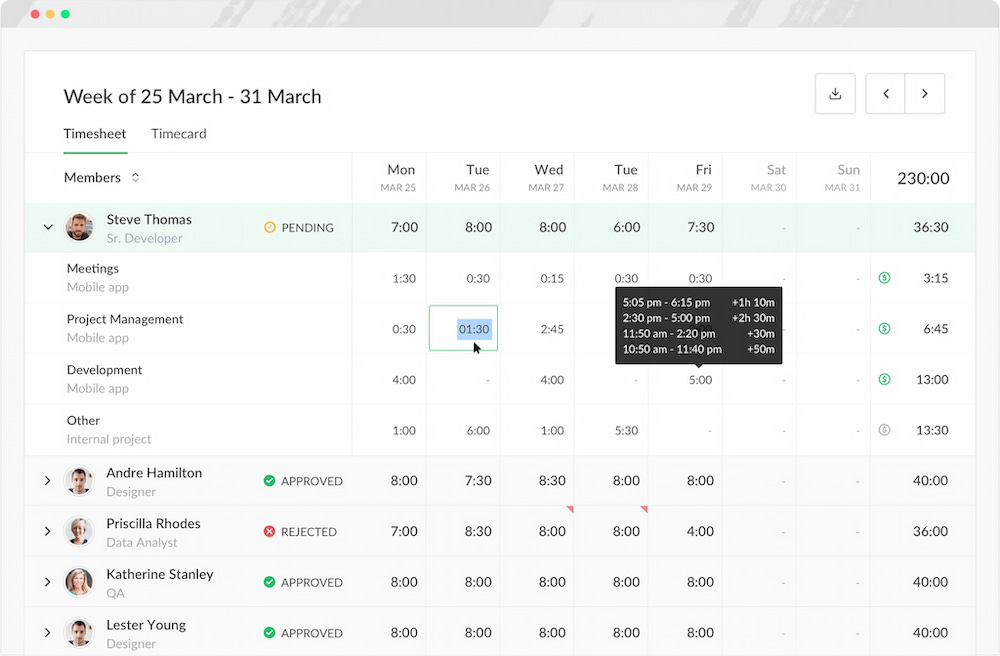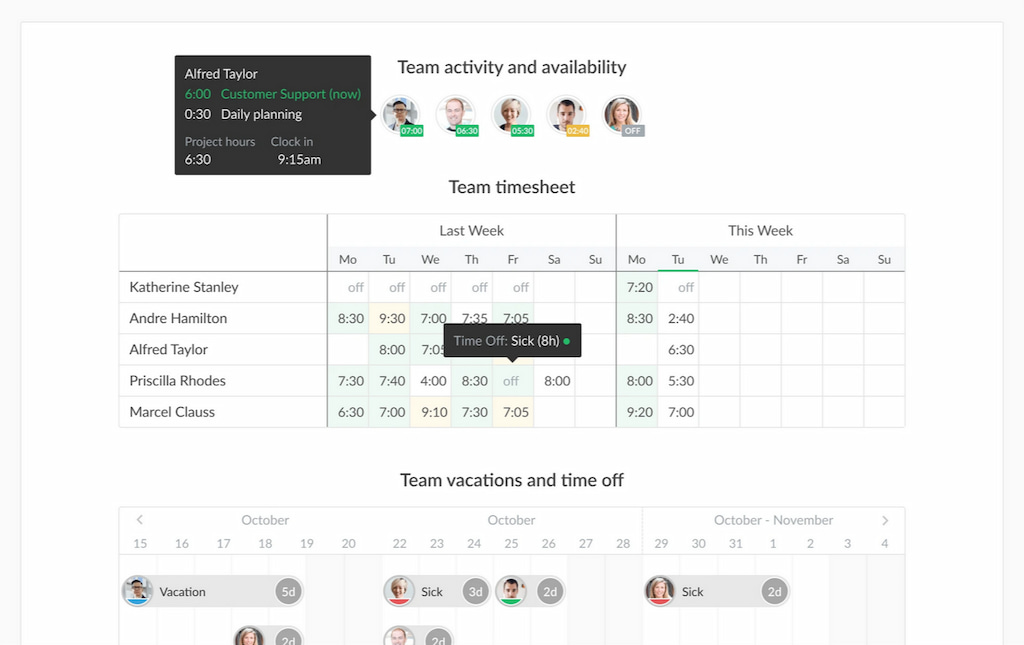Best Rated Time Tracking Solution for Startups: Save Time and Track Projects

Tracking time in a startup isn’t just about counting hours — it’s about understanding where your team’s energy goes, which projects move the needle, and how to stay profitable while growing fast. With tight budgets, shifting priorities, and small teams wearing multiple hats, having a reliable time tracking system becomes essential. In this article, we try to find the best rated time tracking solution for startups, looking at ease of use, reporting depth, integrations, and real-world value. Everhour’s time tracker is one of the standout tools we review, but you’ll also see strong alternatives that may fit different team sizes and workflows.
🚀 Unique Startup Needs for Time Tracking
Startups face fast-paced, ever-changing work environments. Time tracking tools need to do more than just log hours—they should help teams stay efficient, organized, and aware of how time is spent. Key needs include:
- 📝 Flexible task tracking – Easily switch between projects and tasks without wasting time on extra steps.
- 🔗 Integrations with tools – Connect with Jira, Asana, Trello, GitHub, Notion, and other platforms your team uses.
- 📊 Clear reporting – Get instant insights on project hours, costs, and productivity to make smarter business decisions.
- 📈 Scalable for growth – Handle more team members, tasks, and projects as your startup expands.
- ⚡ Ease of use – Intuitive interface with minimal setup ensures everyone on the team can start tracking quickly.
✅ Benefits of Time Tracking for Startups
Effective time tracking isn’t just about monitoring hours—it drives smarter decisions and smoother operations. For startups, the main benefits include:
- 💡 Better project visibility – See exactly where time is spent, which tasks are taking longer, and which projects need attention.
- 📊 Data-driven decisions – Use accurate time reports to estimate costs, set budgets, and plan resources more effectively.
- ⏱️ Improved productivity – Identify time drains, optimize workflows, and keep the team focused on high-impact tasks.
- 💰 Cost control – Track billable vs non-billable hours to prevent budget overruns and maximize ROI.
- 👥 Team accountability – Clear records of work hours help teams stay aligned and motivated without micromanagement.
By tracking time smartly, startups gain insights that help them grow efficiently, manage resources wisely, and maintain a productive team culture.
🏆 Best Rated Time Tracking Solutions for 2026
| Tool | Description | Key Features | Rating (Capterra) | Pricing |
|---|---|---|---|---|
| Everhour | Time tracking integrated with project management tools. | Task tracking, project budgets, reports, browser & mobile access | 4.7/5 | Free plan; paid plan is $8.50/user/month |
| Toggl Track | Simple and intuitive time tracking for teams. | One-click timers, reports, billable hours, idle detection | 4.7/5 | Free for small teams; paid from ~$10/user/month |
| Clockify | Free time tracker with timesheets and dashboards. | Time tracking, project reports, dashboards, integrations | 4.8/5 | Free plan; paid from ~$4.99/user/month |
| Harvest | Time tracking with invoicing and expense tools. | Time & expense tracking, reporting, invoicing, integrations | 4.6/5 | Free for 1 user & 2 projects; paid from ~$12/user/month |
| Hubstaff | Tracking with optional GPS and activity monitoring. | Time tracking, GPS, screenshots, payroll | 4.6/5 | Free limited plan; paid from ~$7/user/month |
| Timely | Automatic time capture across apps. | Auto tracking, reporting, project planning | — | Free trial; paid from ~$8/user/month |
| ClickTime | Advanced tracking for project and budget management. | Timesheets, resource planning, reporting, expense tracking | — | Free trial; paid from ~$12/user/month |
💡 Tool highlights for startups
- Everhour – Strong for startups that need integrated project and time management, offering clear visibility into team productivity.
- Toggl Track – Super intuitive, helping teams quickly adopt time tracking without training.
- Clockify – Affordable and flexible for small teams, perfect when budgets are tight.
- Harvest – Combines time tracking with invoicing, ideal for startups that bill clients hourly.
- Hubstaff – Keeps remote teams accountable with activity monitoring and location tracking.
- Timely – Automatically records work across apps, reducing admin and giving real insights into where time goes.
- ClickTime – Best for projects with multiple moving parts, giving managers an overview of resource allocation and hours spent.
⏰ How Everhour Supports Startup Teams
Startups need tools that keep up with fast-moving projects, multiple team members, and limited resources. Everhour offers time tracking and project management features designed to help startup teams stay organized, efficient, and on budget.
- 🕒 Real-time time tracking – Track hours for tasks and projects accurately, without manual timesheets.

- 💰 Project budgeting & cost control – Monitor costs, prevent overruns, and plan efficiently.
- 🔗 Seamless integrations – Works with Jira, Asana, Trello, Monday, and other tools startups use daily.
- 📊 Team dashboards & reporting – Visualize productivity, billable hours, and project progress at a glance.

- 📱 Mobile access – Log time and check reports on the go for remote or hybrid teams.
- 🔔 Notifications & reminders – Reduce missed entries and keep the team on schedule.
- 📈 Scalable for growth – Flexible enough to support small teams now and larger teams later.
By combining these features, Everhour ensures startup teams can focus on building their business instead of juggling spreadsheets or chasing time entries.
⚡ Potential Pitfalls to Avoid
Startups can benefit a lot from time tracking software, but some common mistakes can reduce its impact. Watch out for:
- ⚠️ Overcomplicating tracking – Too many categories or rules confuse team members.
- ⏰ Ignoring accurate time entries – Logging estimated instead of real-time hours skews reports.
- 📉 Neglecting reporting – Skipping dashboards or analytics loses opportunities to optimize projects.
- 🔄 Skipping integrations – Not connecting to tools like Jira or Asana fragments workflows.
- 💬 Poor team communication – Without guidance, adoption and compliance drop.
- 🏗️ Not planning for growth – Tools that can’t scale create headaches as teams expand.
❓ FAQ: Best Rated Time Tracking Solution for Startups
What is the best time tracking solution for startups?
The best solution depends on team size and workflow, but tools like Everhour offer easy tracking, reporting, and integrations tailored for growing startups.
How can startups track time efficiently?
Startups can track time efficiently by using software that allows real-time logging, integrates with project tools, and provides clear reports for managers and team members.
Can time tracking software help with remote teams?
Yes. Modern solutions offer cloud-based access, mobile apps, and automatic updates so remote team members can log hours and stay synced.
What features should startups look for in time tracking software?
Look for automatic timers, integrations with project management tools, reporting dashboards, user-friendly interfaces, and scalable plans for growth.
Does time tracking improve startup productivity?
Proper time tracking can improve productivity by highlighting bottlenecks, optimizing task allocation, and giving teams visibility into where time is spent.
Is reporting important in startup time tracking software?
Absolutely. Reports provide insights for planning, resource allocation, and identifying inefficiencies before they impact deadlines.
Can time tracking software integrate with other tools?
Most top solutions, including Everhour, integrate with project management and communication tools like Jira, Asana, Trello, Slack, and GitHub.
🔎 On a Final Note
Time tracking is essential for startups to stay organized, meet deadlines, and understand how work is progressing. Choosing the right solution helps teams save time, improve productivity, and make smarter decisions. Tools like Everhour provide a balance of accuracy, reporting, and integrations that fit the fast-paced needs of growing startups.
